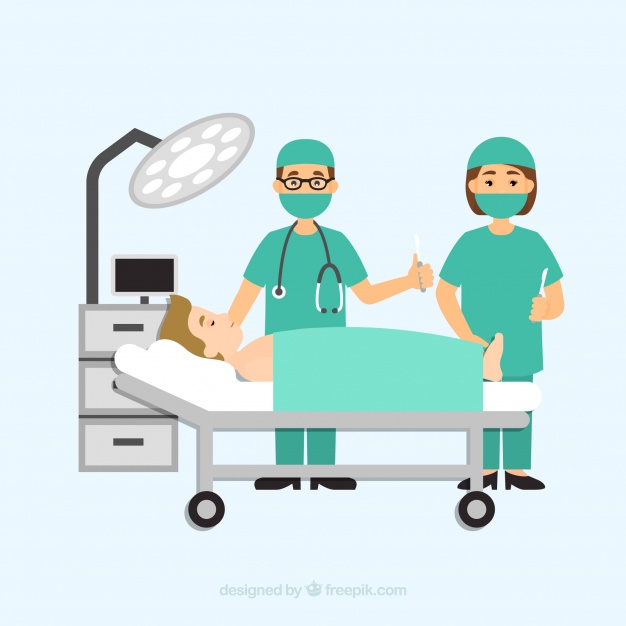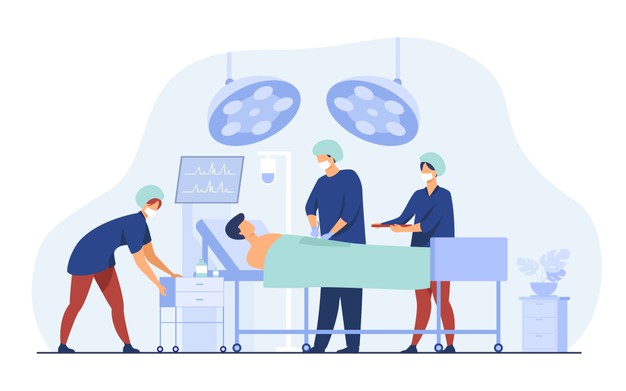Post operative nutritional care, administration of protein and energy, correction of specific deficiencies and way of reducing post operative morbidity and mortality rate
Description : The nutritional care which is provided to the patient after surgery is generally termed as post
Article Details :
The nutritional care which is provided to the patient after surgery is generally termed as post operative nutritional care. Nutrition therapy plays crucial role for accelerating the healing process. Individual increases the need of nutrients after surgery in many folds, which should be met by proper nutritional support otherwise it may increase the risk of morbidity and mortality rate.

Post operative nutritional management
Nutrition plays vital role in this phase. Appropriate nutritional support is essentially required during post operative condition for promoting early recovery from surgery as losses of nutrients are greatly occurred in this period. At the same time food intake is decreased to a great extent, which ultimately increases the nutritional requirement of the body and it should be fulfilled by providing adequate nutritional support. After surgery if it is seen that patients are not consuming adequate food orally then alternative nutritional support should be given to them like enteral nutrition or parenteral nutrition. Various nutrients require special attention during post operative condition.
Protein
- Protein is considered as one of the most important nutrient of post operative condition and it is better to provide 1.5 to 2g of protein per kg of ideal body weight
- Proper protein intake is the primary concern for every patient during post operative recovery period as it helps to replace the losses that have occurred during surgery
- It has seen that after surgery tissues of the body undergo tremendous catabolism (breaking down of tissue) thus protein intake is very much essential as it helps to re-synthesize tissues
- Malnutrition as well as weight reduction are recognized as the common complications of those patients who suffer from catabolic stress and to prevent this complication proper protein should be provided to them
- Protein is also associated with increasing lean body mass, which ultimately helps to improve the survival of catabolic patient
- It is better to provide branched chain amino acid to the patients as it helps to prevent muscle wasting and also improves the recovery time
- Consumption of essential amino acid is very effective during this phase as it helps to accelerate the process of wound healing. Wound healing greatly requires the building up of new tissues, which is entirely dependent on adequate protein consumption especially the consumption of essential amino acids like arginine, lysine, leucine, isoleucine, valine, histidine, tryptophan, methionine, threonine and phenylalanine. As the body cannot synthesize essential amino acids hence they should be consumed through diet or supplements
- It has seen that after surgery the serum protein level is reduced due to protein loss as a result the colloidal osmotic pressure is decreased and subsequently edema develops. Edema is generally characterized by fluid retention and it may severely affect the functionality of lungs as well as heart and also delays the normal healing process. The primary feature of treating edema is to raise the serum protein level, which can be easily done by protein consumption
- It is better to provide albumin to patients for increasing the concentration of serum albumin, which ultimately helps to maintain blood volume thus reduces the prevalence of shocking symptoms
- Consumption of protein along with mineral is extremely useful for promoting the synthesis of healthy bone tissues. It has seen that protein acts as a matrix for the minerals calcium and phosphorus, which are essentially required for strong and healthy bones
- Protein helps to boost up the overall immunity of the body by promoting the synthesis of antibodies, WBC etc. This ultimately helps to protect the body from developing infectious diseases
- Protein is also required for the synthesis of lipoproteins, which are required for transporting fat through bloodstream to all tissues of the body especially to the liver for facilitating metabolism
Energy
- As the need of protein get increased during post operative condition for tissue building purposes hence non protein calories (calories that come from carbohydrates and fats) should be provided for sparing the protein for energy yielding reason
- It is better to provide more calories than the RDA to support the catabolic rate of the body. Energy consumption may be increased to 1.2 to 2 kcal per kg of ideal body weight over basal energy requirement
Carbohydrate
- Diet should contain sufficient carbohydrates for providing required energy
- It also helps to restore the glycogen storage in liver thus helps to promote metabolism and also protects the liver from damages
- It is better to consume at least 130g of carbohydrates per day as this amount of carbohydrate is considered as sufficient for sparing proteins for synthesizing purposes

Fat
- Fat is an imperative nutrient that plays vital role in providing calorie thus it should be provided to patients but in moderate amount as too much fat consumption is Read more



